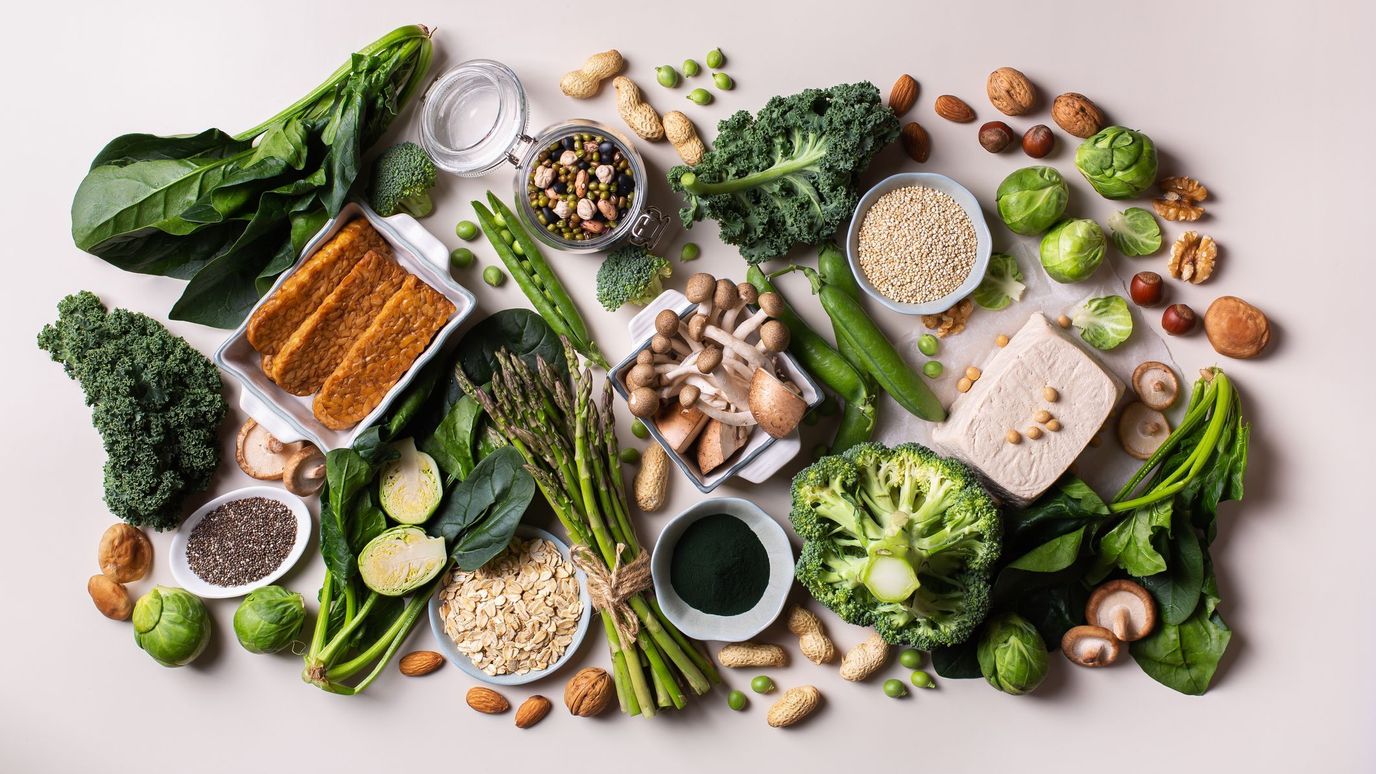Vegan Food List: 11 Foods That Healthy Vegans Eat
 Posted On
Posted On
Introduction:
A vegan diet is a plant-based eating pattern that excludes all animal products, including meat, dairy, eggs, and honey. While it may seem challenging to meet all the necessary nutrients on a vegan diet, there are plenty of delicious and nutrient-dense foods that can provide a wide range of essential vitamins, minerals, and protein. This comprehensive guide aims to highlight 11 key foods that healthy vegans incorporate into their diet, ensuring they meet their nutritional needs and enjoy a diverse and satisfying plant-based eating experience.
Legumes:
Legumes, such as lentils, chickpeas, and black beans, are a cornerstone of a healthy vegan diet. They are rich in protein, fiber, iron, and folate. Legumes are versatile and can be used in various dishes, including soups, stews, salads, and veggie burgers.
Whole Grains:
Whole grains like quinoa, brown rice, and oats are excellent sources of complex carbohydrates, fiber, B vitamins, and minerals. They provide sustained energy and promote digestive health. Whole grains can be incorporated into meals as a side dish, in salads, or as a base for stir-fries.
Nuts and Seeds:
Nuts and seeds, including almonds, walnuts, chia seeds, and flaxseeds, are packed with healthy fats, protein, fiber, and essential minerals. They can be enjoyed as snacks, added to smoothies, sprinkled on salads, or used in homemade granola or nut butter.
Leafy Greens:
Dark leafy greens like spinach, kale, and Swiss chard are nutrient powerhouses. They are rich in iron, calcium, vitamin K, and antioxidants. Leafy greens can be consumed in salads, sautéed as a side dish, or blended into smoothies for an added nutritional boost.
Cruciferous Vegetables:
Cruciferous vegetables, such as broccoli, cauliflower, and Brussels sprouts, are known for their high fiber content, antioxidants, and various vitamins and minerals. These vegetables can be roasted, steamed, or stir-fried to retain their nutrients and enhance their flavors.
Berries:
Berries like strawberries, blueberries, and raspberries are not only delicious but also loaded with antioxidants, fiber, and vitamins. They can be enjoyed fresh, added to smoothies, or used as a topping for oatmeal or dairy-free yogurt.
Plant-Based Milk:
Plant-based milk alternatives, such as almond milk, soy milk, and oat milk, are fortified with essential nutrients like calcium, vitamin D, and vitamin B12. These milk alternatives can be used in place of dairy milk in various recipes and beverages.
Tofu and Tempeh:
Tofu and tempeh are popular plant-based sources of protein. They are made from soybeans and provide a complete amino acid profile. Tofu can be marinated and used in stir-fries, while tempeh can be crumbled and added to chili or used as a meat substitute in sandwiches and burgers.
Seaweed:
Seaweed, such as nori, kelp, and wakame, is an excellent source of iodine, which is important for thyroid function. It also contains minerals like iron and calcium. Seaweed can be used in sushi rolls, added to salads, or enjoyed as a snack.
Avocado:
Avocado is a nutritious fruit rich in healthy fats, fiber, and vitamins. It can be used as a spread on toast, added to salads, or blended into smoothies for a creamy texture and added nutritional benefits.
Nutritional Yeast:
Nutritional yeast is a deactivated yeast that adds a cheesy flavor to dishes. It is often fortified with vitamin B12, a nutrient commonly lacking in vegan diets. Nutritional yeast can be sprinkled on popcorn, pasta, or roasted vegetables for a savory flavor boost.
Conclusion:
A vegan diet can be healthy, balanced, and enjoyable with the inclusion of a variety of plant-based foods. The 11 foods mentioned in this guide – legumes, whole grains, nuts and seeds, leafy greens, cruciferous vegetables, berries, plant-based milk, tofu and tempeh, seaweed, avocado, and nutritional yeast – provide a wide range of essential nutrients, including protein, fiber, healthy fats, vitamins, and minerals. By incorporating these foods into their diet, vegans can ensure they meet their nutritional needs while enjoying a diverse and flavorful plant-based eating experience. Remember to focus on whole, minimally processed foods and consult with a registered dietitian or healthcare professional for personalized guidance on meeting specific nutrient requirements.
- Elevate Your Vaping Experience: A Personal Review of Vessel’s Craftsman Series! - July 13, 2024
- Vegan Food List: 11 Foods That Healthy Vegans Eat - July 8, 2023



